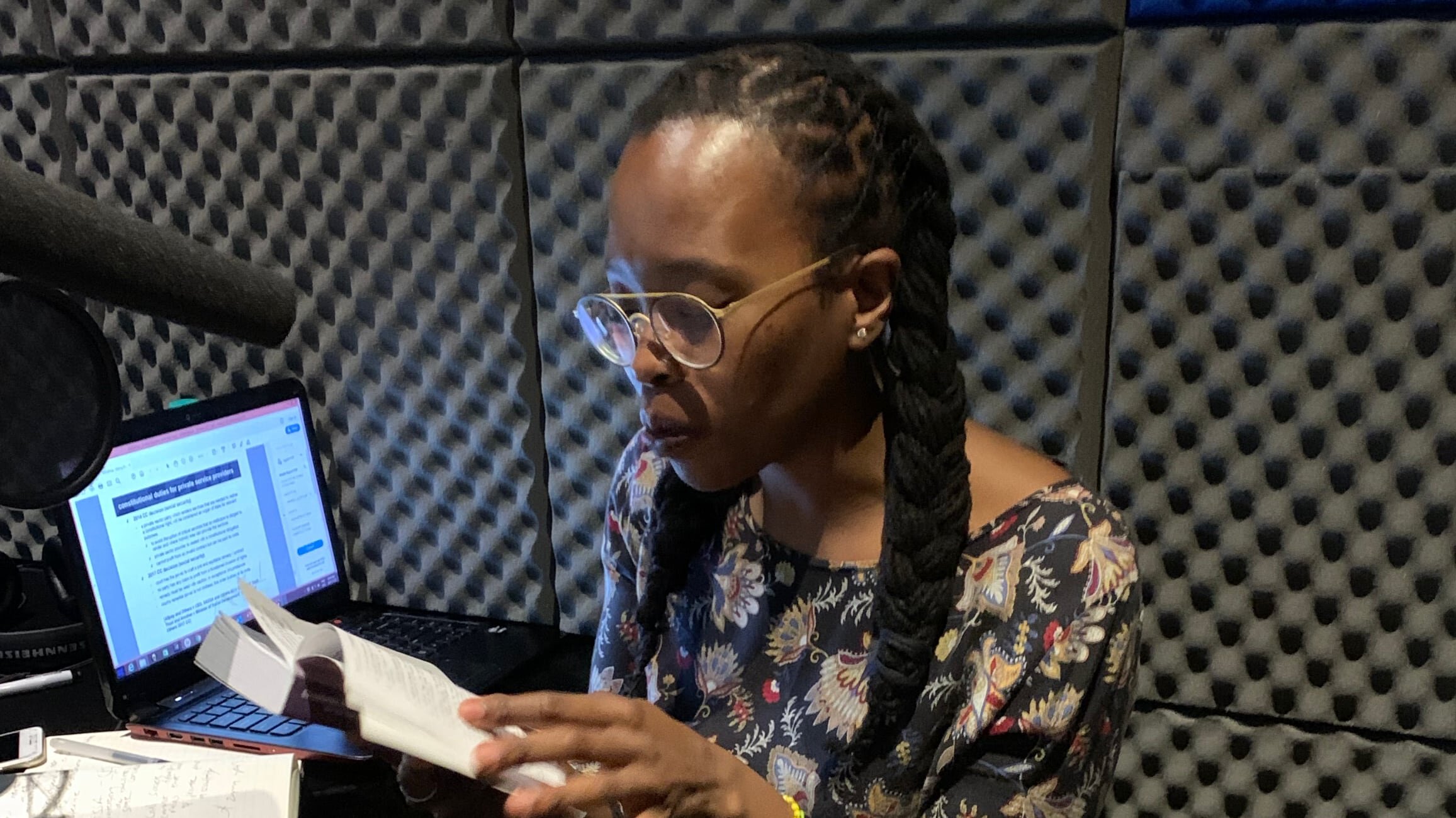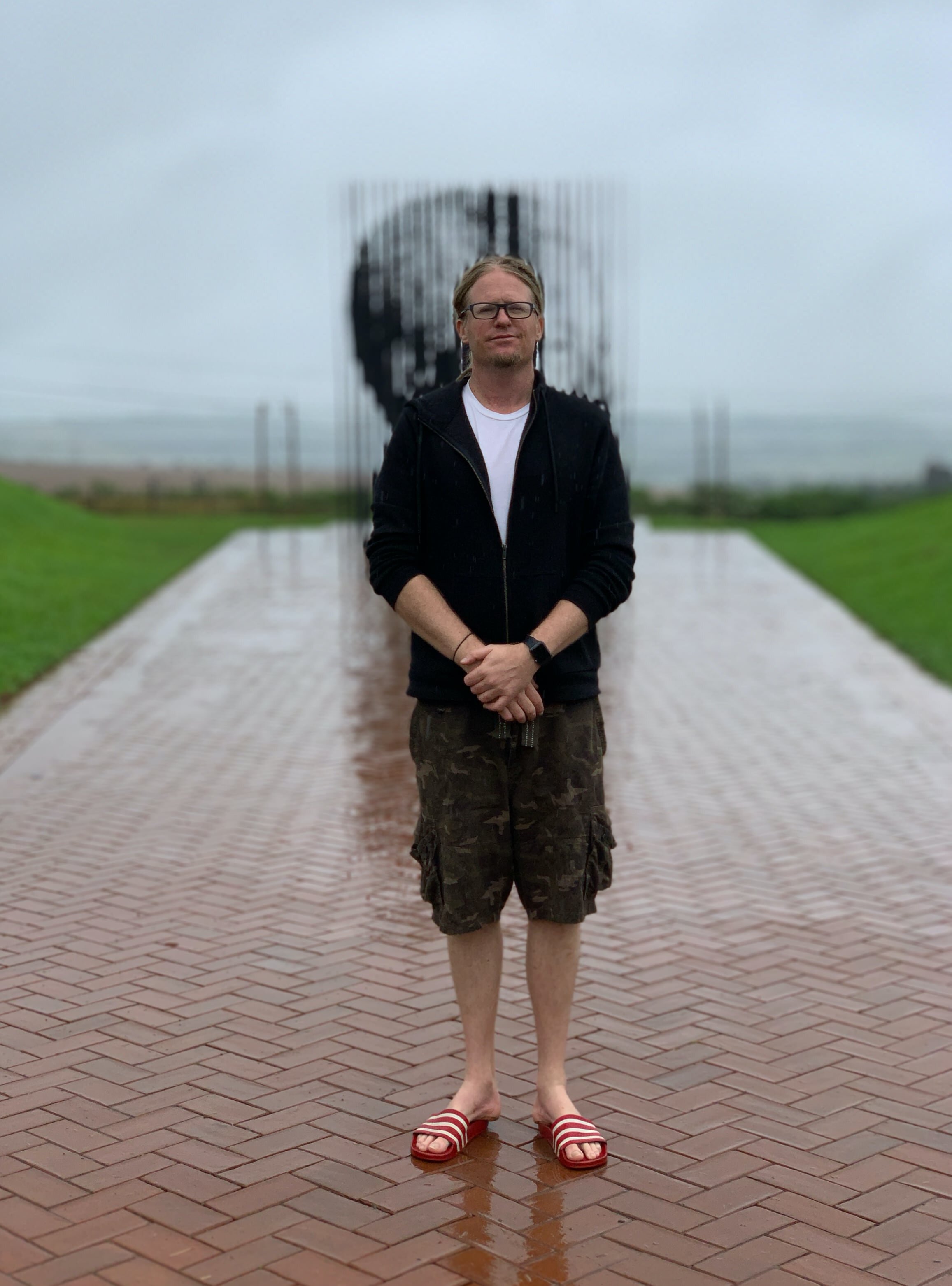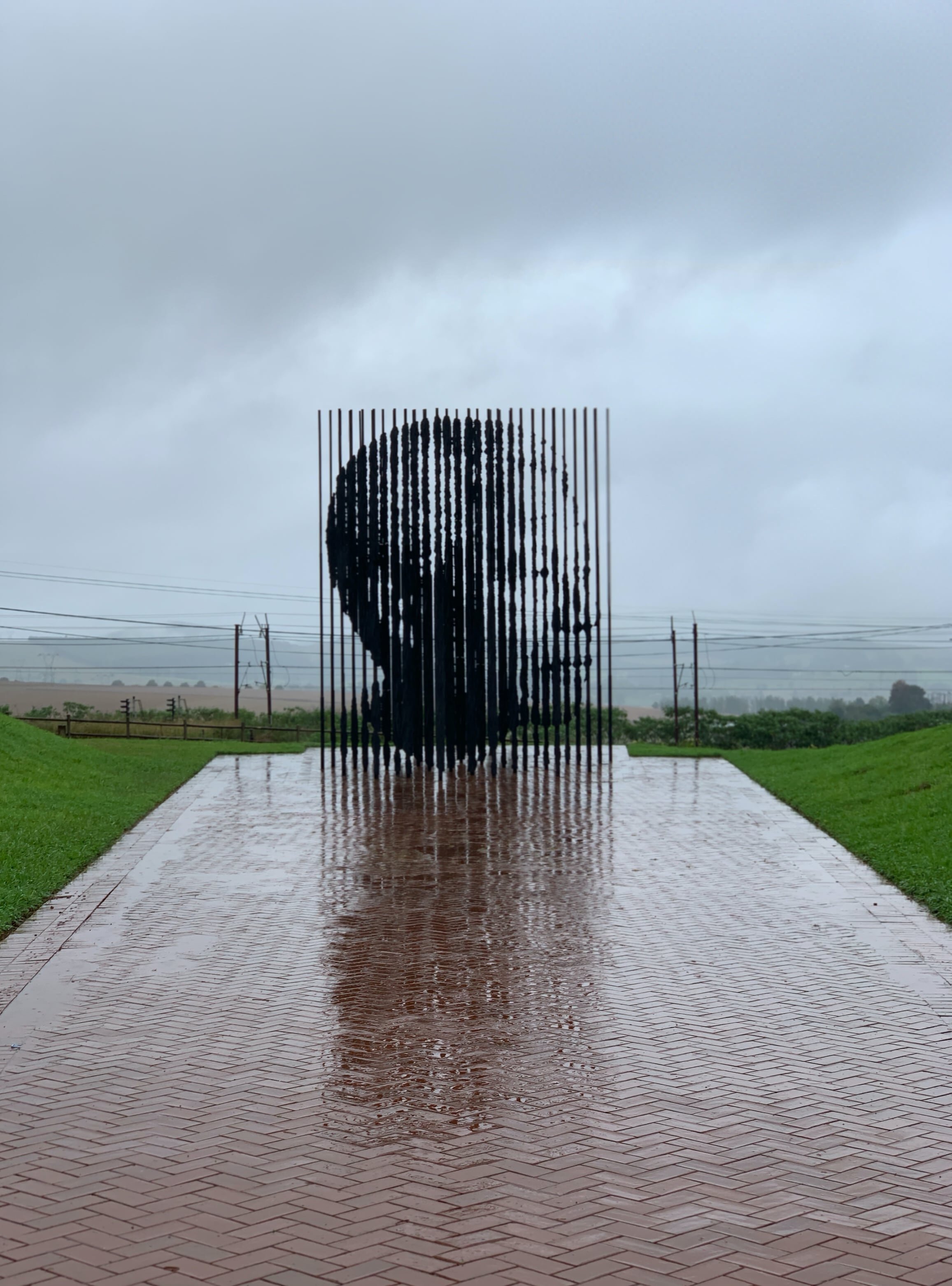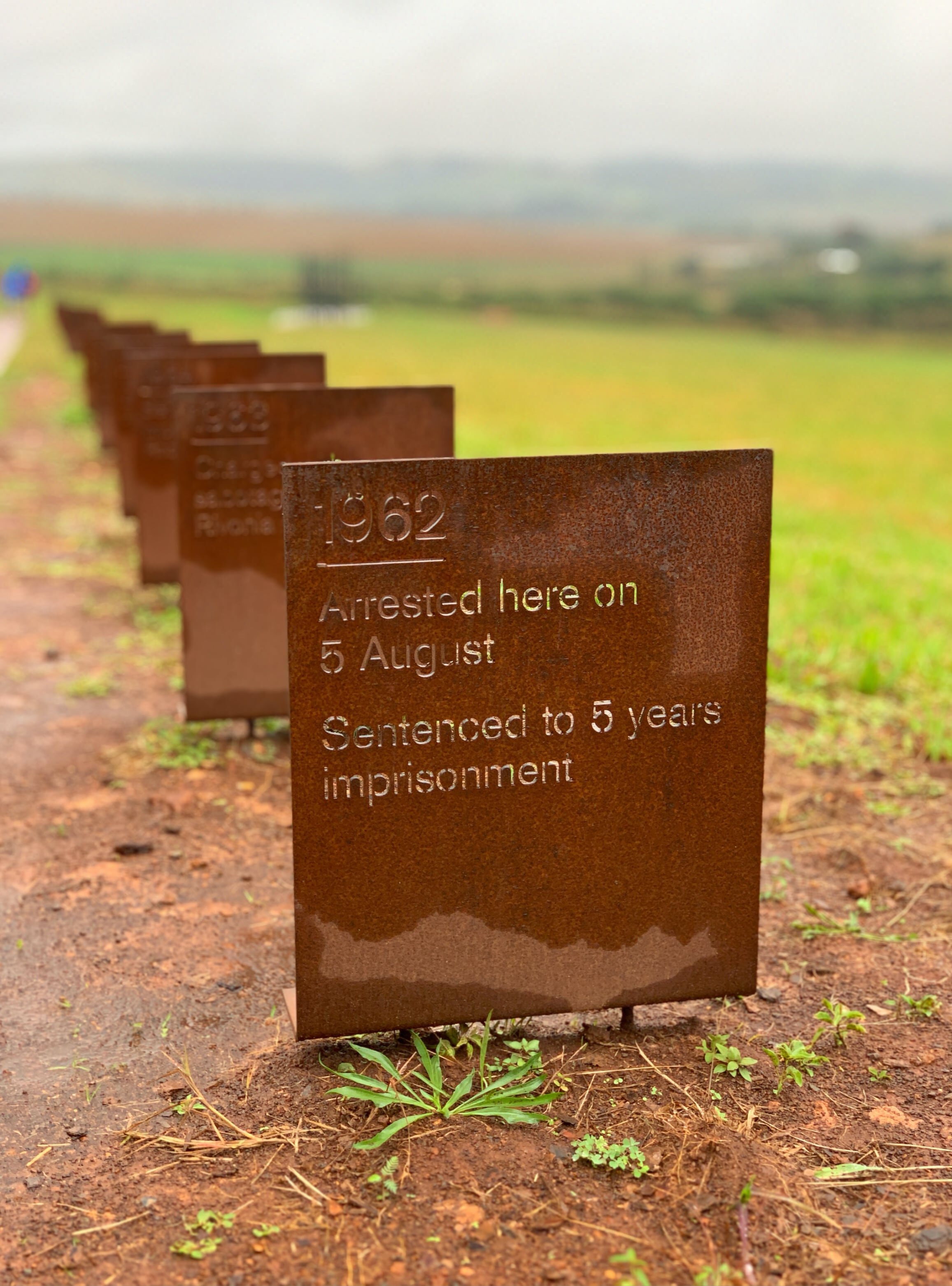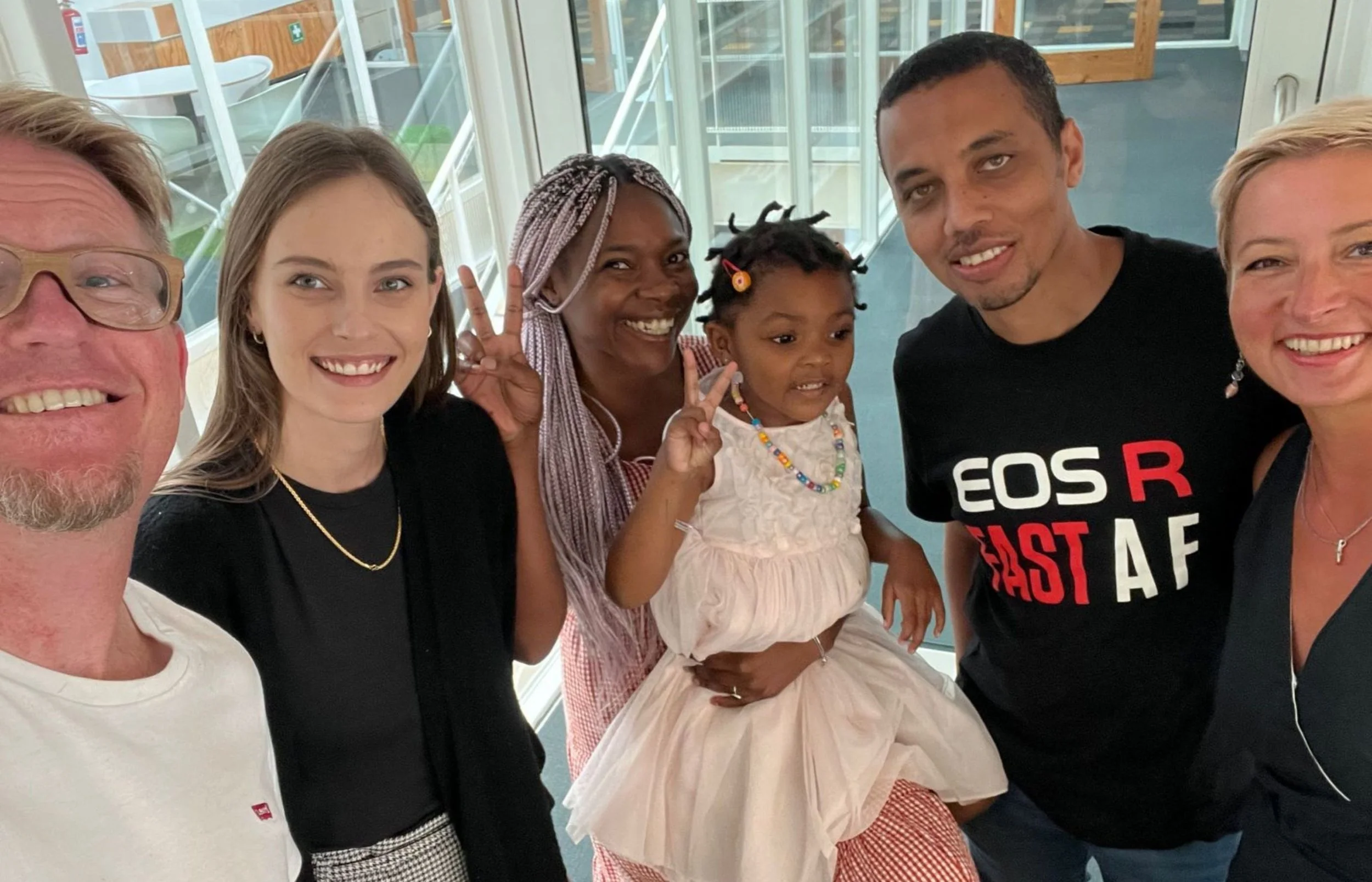The Prosecutor And Mr Mandela
In the past two months, I’ve had the good fortune of meeting with Lwando Xaso and Honourable Justice Albie Sachs three times. On each occasion, I learned a great deal about leadership and ethics and was inspired by their ongoing work to uphold the Constitution of South Africa, which previously I took for granted but now realise is one of the most impressive legal platforms in existence.
However, my favourite learning from meeting these two extraordinary people has been in the revealing of the veritable treasure chest that is South African history.
Meeting Lwando and Albie has exposed to me how much I’d been digging in international fields, and how little I knew of the riches buried in our own land.
I first visited Albie (he gave me permission to drop the ‘Honourable Justice’) at his home in Cape Town, overlooking Clifton Beach. After traversing down a steep stairway to get to his front door, I was then instructed to take off my socks upon entering. I sat with Albie for an hour, interviewing him and asking him questions around leadership and affecting change. Here is a snippet of the conversation:
The next time I met with Albie was in Johannesburg, at Heavy Chef’s ‘Change Makers’ event in October. He was sharing the Heavy Chef stage with Lwando Xaso, who had previously worked as a clerk for Justice Edwin Cameron at the Constitutional Court (“the best job I ever had”) and is now a lawyer and entrepreneur.
Lwando is remarkable. She is fiercely passionate about the Constitution of South Africa and deeply knowledgable about African history. After delivering a stirring message at the Heavy Chef session alongside Albie and Nando’s founder Robbie Brozin, Lwando agreed to be interviewed for our Heavy Chef entrepreneur podcast. We met again at the Sonovision studios in Johannesburg to record an episode that will air in February 2020.
During the interview, Lwando constantly referred to important milestones in South African history that I was not aware of, and regularly quoted from a well-thumbed pocket-book of the Constitution that she carried in her bag. There were many nuggets in this conversation, with Lwando touching on fascinating cases that she was directly involved with at the Constitution Court.
Lwando Xaso, during the Healthy Business Show podcast interview, reading from the little Constitution book that she carries with her everywhere she goes. The podcast will air in 2020.
It was the third meeting that impacted me the most deeply, via a seemingly throwaway comment from Lwando. After seeing Lwando and Albie on stage at Heavy Chef in October, the organisers of the renowned WPP Stream events invited them to retell the Constitution story to an audience of advertising executives and entrepreneurs in the 2019 Stream conference, held this past week.
During their Stream presentation, which occurred on Thursday morning, Lwando dropped a side reference to ‘a black man in a white man’s court’, a quote by Nelson Mandela in his defence of charges laid during a trial in 1961.
Lwando said it confidently as if we all should know it - and possibly many of the audience did - but I did not recall it in the slightest.
I have read ‘Long Walk To Freedom’ and several other biographies of Madiba, but this particular reference had slipped my mind.
Like many South Africans, I can easily recall learning about the 1963 Rivonia Trial with the speech containing the famous words:
During my lifetime I have dedicated myself to this struggle of the African people. I have fought against white domination, and I have fought against black domination. I have cherished the ideal of a democratic and free society in which all persons live together in harmony and with equal opportunities. It is an ideal which I hope to live for and to achieve. But if needs be, it is an ideal for which I am prepared to die.
The Rivonia Trial occupies a powerful place in our timeline. I have read reams of information about it and even made the pilgrimage to visit the Capture Site where Nelson Mandela was pulled over by police while driving through the Natal Midlands.
The Capture Site is breathtaking. The sense of historical magnitude was palpable for me as I solemnly walked through the displays. The location underpins a moment that changed the course of our country.
The thing is, the wealth of information around the Rivonia Trial has dominated so much of my history knowledge that I had completely overlooked Nelson Mandela’s first trial, the one that Lwando mentioned.
This morning, I spent most of my time reading up about this ‘other’ trial, referred to simply as the ‘Treason Trial’. It is a rabbit hole that has taken up my whole day and revealed one particular nugget that I feel compelled to share in this post.
The Treason Trial happened after Nelson Mandela and many of his comrades were captured in an infamous raid in 1956. Just before dawn on December 5th, the South African Police's Security Branch raided and arrested 140 people from around the country on the charge of treason as they enforced the so-called ‘Suppression of Communism Act’. The list of people detained reads like a who’s who of South African history, with names like Ruth First, Ahmed Kathrada, Chief Albert Luthuli, Walter Sisulu, Joe Slovo, Oliver Tambo - and of course, Nelson Mandela.
The raid was unexpected and overtly aggressive, and the entire initiative was designed to subdue the members of the opposition. Luthuli said of this period:
The Treason Trial must occupy a special place in South African history. That grim pre-dawn raid, deliberately calculated to strike terror into hesitant minds and impress upon the entire nation the determination of the governing clique to stifle all opposition.
The trial dragged on for five years. Reading about it now, it’s clear that it was all an exercise in extreme intimidation. The police specifically laid the charge of ‘treason’ because it carried the death penalty, even though the evidence was spurious and unlikely to hold up against interrogation.
During this time, something happened that the ruling party did not expect. As a result of their actions, the genius of Mandela was displayed in full during court proceedings. In what has to be one of the most remarkable legal backhands in African history, he managed to turn the trial into an indictment of the South African State.
It culminated in a virtuoso performance in October 1962 when he challenged the presiding Magistrate Mr W A van Helsdingen, first by confronting the Magistrate’s own legitimacy, then by confronting the legitimacy of the entire South African legal framework. Considering the stakes, Mandela displayed astonishing audacity.
I want to apply for Your Worship's recusal from this case. I challenge the right of this court to hear my case on two grounds. Firstly, I challenge it because I fear that I will not be given a fair and proper trial. Secondly, I consider myself neither legally nor morally bound to obey laws made by a parliament in which I have no representation.
Can you imagine the look on the face of that judge as Nelson Mandela said those words? It must have been priceless.
In the transcript, Magistrate Van Helsdingen’s response appears flustered and irritable. He interrupts Mandela several times and tries to pull it back to the charges. Clearly, Van Helsdingen didn’t want to be distracted by a mere moral standpoint: “After all is said and done,” he says to Mandela, “there is only one court today and that is the White Man's court. There is no other court. What purpose does it serve you to make an application when there is only one court, as you know yourself. What court do you wish to be tried by?”
Mandela replied with what has to be one of the most powerful legal statements ever delivered, part of which included the words that Lwando Xaso referred to:
I hate race discrimination most intensely and in all its manifestations. I have fought it all during my life; I fight it now, and will do so until the end of my days. Although I now happen to be tried by one whose opinion I hold in high esteem, I detest most violently the set-up that surrounds me here. It makes me feel that I am a black man in a white man's court. This should not be. I should feel perfectly at ease and at home with the assurance that I am being tried by a fellow South African who does not regard me as an inferior, entitled to a special type of justice.
Notice how Mandela is making such a strong statement, yet still has the benevolence to be respectful - “by one whose opinion I hold in high esteem”. Mandela’s entire defence is riveting and makes for compelling reading on its own.
While reading the back and forth between Mandela and the Magistrate, something struck me as odd about the proceedings. The prosecutor on the trial seemed disconnected, almost as though he didn’t want to be there. He was an advocate named Bosch and he stuck strictly to his points, rarely labouring any issues. His statements were mild and succinct, which seemed particularly strange given how belligerent the state had been up to that point. I tried to search for more about Bosch online and couldn’t find much, except for a single paragraph - an extract from a book written by Mandela’s advisor in the Treason Trial, Bob Hepple.
Hepple was later one of the accused in the Rivonia Trial, but was acquitted and then escaped to England. In his book outlining his experiences Young Man With A Red Tie, Hepple describes a particular moment during the day of the ‘black man in a white man’s court’ speech:
The incident concerned the prosecutor, Mr J P Bosch. On the morning of the day Mandela was to make his closing speech, we were consulting in his room. There was a knock on the door. It was prosecutor Bosch: ‘I’d like a private word with Mandela.’ ‘Don’t be crazy’ I said ‘you can’t speak to him alone in the middle of a trial.’ But Mandela intervened and said he did not mind. He asked me to wait outside. I left them. When Bosch came out of the cell about five minutes later, I saw tears streaming down his face. I asked Mandela: ‘what the hell’s going on?’ He replied: ‘You won’t believe this but he asked me to forgive him’. I exclaimed ‘Nel, I hope you told him to get stuffed’. To my surprise, Mandela responded: ‘No, I did not. I told him I knew he was just doing his job, and thanked him for his good wishes.’
Is that not one of the most mind-blowing things you’ve ever read?
There is so much in this excerpt that floors me.
Firstly, the empathy required to forgive someone who is literally trying to have you killed (remember, this was a trial for treason) is absolutely staggering.
Secondly, this story reveals the power that Madiba had to affect someone so greatly that he would abandon his station and intentionally seek out his legal opponent to apologise. The moral, ethical and legal assertion that Mandela had established was so strong that his opposition had been compelled to seek forgiveness for pressing an issue that was so clearly flawed.
Thirdly, this little interlude underpins how absurd the entire establishment of Apartheid was, to the extent that its own proponents were aware of its failings and were brought to tears when confronted by an individual who could eloquently deconstruct it.
Fourth, I love how much disdain Hepple has for the prosecution, “tell him to get stuffed” and the clue to his relationship with Mandela, how close they were and how they’d bonded during the proceedings, in his use of the shortened nickname “Nel”.
Lastly, it’s made me wonder: whatever happened to JP Bosch? This guy’s own story is now an odd footnote in history. How many others contributed in tiny ways to the advancement of our democracy, and how many more were struck by the injustices of the structures we have been held to.
After researching Bob Hepple’s book, I am now left thinking about the myriad of other hidden treasures of South African and African history that are lying around.
In a Heavy Chef presentation earlier this year, Former President Thabo Mbeki lamented the fact that our education system still imposes a curriculum that is largely based on international standards and norms. We focus on foreign narratives over and above our own.
Now that we have a Constitution we can be proud of, why not dig into our own treasure chest?
Today, I am left enormously grateful for having read the transcripts from the Treason Trial this morning (thank you, Lwando) and excited about uncovering more treasures ahead. There are so many accounts to uncover, Solomon Mahlangu, Zola Skweyiya, Steve Biko, Ruth First, Edwin Cameron - the list is very, very long.
As I start investigating, however, I’m conscious that it’s in the little anomalies, the side-narratives like the peculiar story of Mandela and Mr JP Bosch, where the real gold lies.


